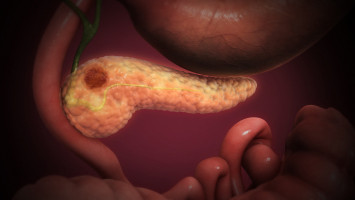
A new research paper was published in Genes & Cancer on March 10, 2023, entitled, “VCP/p97, a pleiotropic protein regulator of the DNA damage response and proteostasis, is a potential therapeutic target in KRAS-mutant pancreatic cancer.”
Researchers have recently shown that proteins involved in the DNA damage response (DDR) are critical for KRAS-mutant pancreatic ductal adenocarcinoma (PDAC) cell growth in vitro.
However, the CRISPR-Cas9 library that enabled the identification of these key proteins contained limited representation of DDR-related genes.
In their recent study, researchers Ye S. Lee, Jennifer E. Klomp, Clint A. Stalnecker, Craig M. Goodwin, Yanzhe Gao, Gaith N. Droby, Cyrus Vaziri, Kirsten L. Bryant, Channing J. Der, and Adrienne D. Cox from the University of North Carolina at Chapel Hill performed a comprehensive, DDR-focused CRISPR-Cas9 loss-of-function screen to further investigate the DDR in this context.
“Our search was directed toward DDR proteins, stemming from our previous identification of this pathway as an important mechanism for PDAC survival [28].”
This screen identified valosin-containing protein (VCP) as an essential gene in KRAS-mutant PDAC cell lines.
The team observed that genetic and pharmacologic inhibition of VCP limited cell growth and induced apoptotic death.
To address the basis for VCP-dependent growth, they first evaluated the contribution of VCP to the DDR and found that loss of VCP resulted in accumulation of DNA double-strand breaks.
Next, they addressed its role in proteostasis and found that loss of VCP caused accumulation of polyubiquitinated proteins.
The researchers also found that loss of VCP increased autophagy.
Therefore, the team reasoned that inhibiting both VCP and autophagy could be an effective combination.
Accordingly, they found that VCP inhibition synergised with the autophagy inhibitor chloroquine.
Their conclusion was that concurrent targeting of autophagy can enhance the efficacy of VCP inhibitors in KRAS-mutant PDAC.
“We identified VCP as an important protein for PDAC growth and proteostasis via its regulation of protein degradation. VCP has therapeutic potential; however, explorations of this potential in preclinical studies were limited to the use of VCPi CB-5083.”
Source: Impact Journals LLC
We are an independent charity and are not backed by a large company or society. We raise every penny ourselves to improve the standards of cancer care through education. You can help us continue our work to address inequalities in cancer care by making a donation.
Any donation, however small, contributes directly towards the costs of creating and sharing free oncology education.
Together we can get better outcomes for patients by tackling global inequalities in access to the results of cancer research.
Thank you for your support.